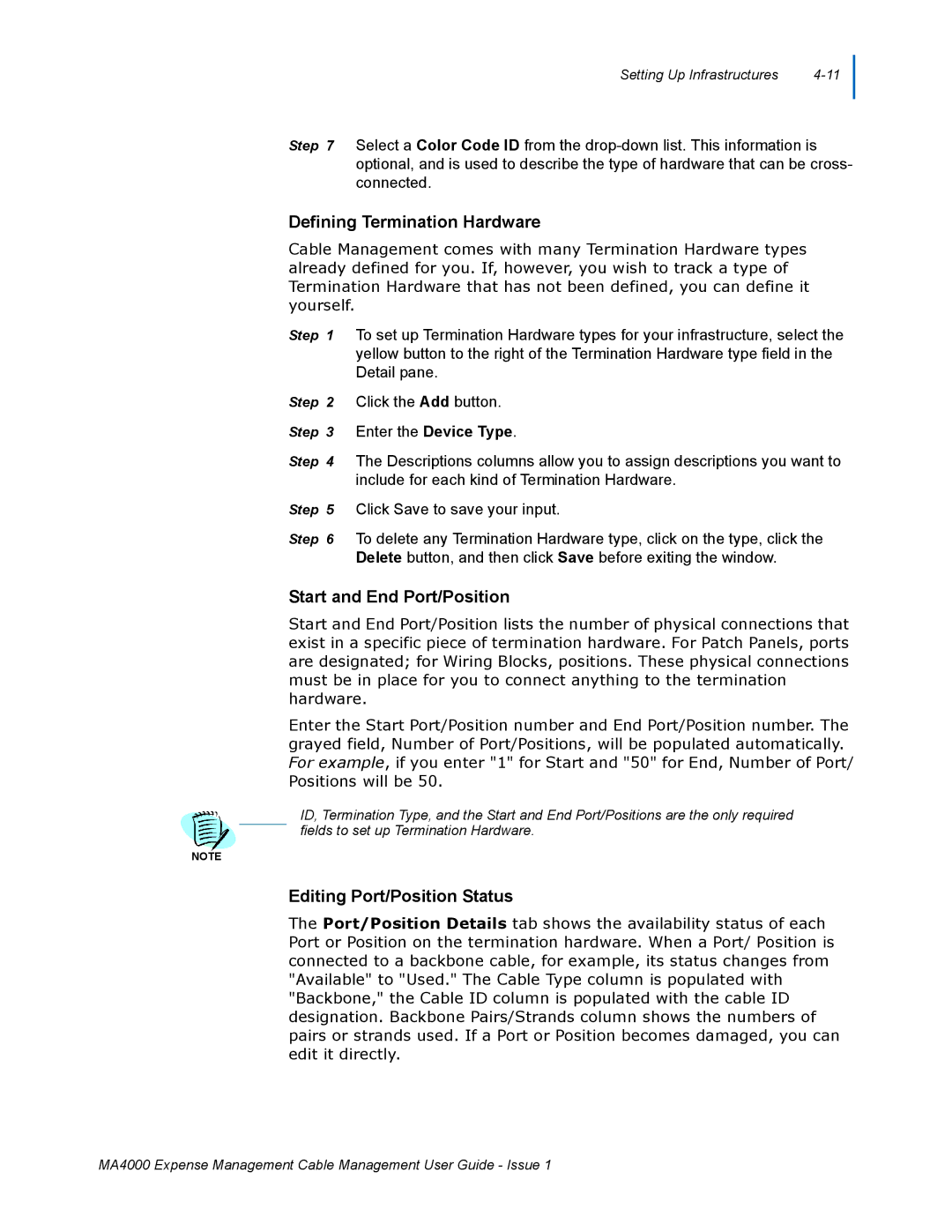
Setting Up Infrastructures |
Step 7 Select a Color Code ID from the
Defining Termination Hardware
Cable Management comes with many Termination Hardware types already defined for you. If, however, you wish to track a type of Termination Hardware that has not been defined, you can define it yourself.
Step 1 To set up Termination Hardware types for your infrastructure, select the yellow button to the right of the Termination Hardware type field in the Detail pane.
Step 2 Click the Add button. Step 3 Enter the Device Type.
Step 4 The Descriptions columns allow you to assign descriptions you want to include for each kind of Termination Hardware.
Step 5 Click Save to save your input.
Step 6 To delete any Termination Hardware type, click on the type, click the Delete button, and then click Save before exiting the window.
Start and End Port/Position
Start and End Port/Position lists the number of physical connections that exist in a specific piece of termination hardware. For Patch Panels, ports are designated; for Wiring Blocks, positions. These physical connections must be in place for you to connect anything to the termination hardware.
Enter the Start Port/Position number and End Port/Position number. The grayed field, Number of Port/Positions, will be populated automatically. For example, if you enter "1" for Start and "50" for End, Number of Port/ Positions will be 50.
ID, Termination Type, and the Start and End Port/Positions are the only required fields to set up Termination Hardware.
NOTE
Editing Port/Position Status
The Port/Position Details tab shows the availability status of each Port or Position on the termination hardware. When a Port/ Position is connected to a backbone cable, for example, its status changes from "Available" to "Used." The Cable Type column is populated with "Backbone," the Cable ID column is populated with the cable ID designation. Backbone Pairs/Strands column shows the numbers of pairs or strands used. If a Port or Position becomes damaged, you can edit it directly.
MA4000 Expense Management Cable Management User Guide - Issue 1
